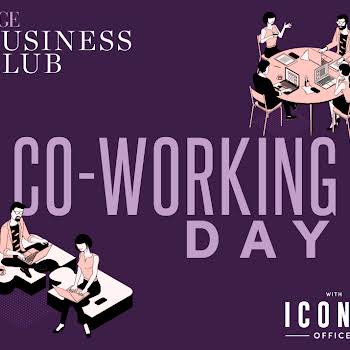
By Colette Sexton
05th Oct 2018
05th Oct 2018
Colette Sexton, news correspondent at The Sunday Business Post, on how employers can positively impact breastfeeding rates in Ireland.
I have been a business journalist for four years now. During that time, I have done hundreds of interviews, but of those dozens and dozens of people I’ve spoken to, only once has an interviewee asked me if it was okay if she brought her baby along, as she was still breastfeeding. Despite some claims to the contrary, I tend to be a nice person, and certainly am not the kind of person that would leave a baby hungry while I interview its mother. So I assured my interviewee that breastfeeding would be no big deal.
Except it was, because it never happened before. It was something that had to be asked for, and something that was unusual. It is currently National Breastfeeding Week, which is why I started thinking about that mother and her baby.
That interview happened a year ago now. It went splendidly, and the interviewee was fantastic, despite having to answer a stranger’s questions while feeding her baby in the restaurant of a five-star hotel in Dublin (women are amazing).
At the time, I was shocked that this situation had never come up before. But for all our talk of equality, it hasn’t happened since either. There is an argument that many mothers that breastfeed do so during their maternity leave, and so should not be expected to be at work during those six or so months.
However, many mothers choose to breastfeed for longer than six months, or rather, they would if their workplaces would allow it. It is important to note that the woman who brought her baby along to the interview was her own boss.
Although rates have gradually increased over the past decade, Ireland’s breastfeeding levels continue to be very low compared to international standards. Only 15 per cent of children in Ireland are exclusively breastfed for the first six months, compared with the global average of 38 per cent and the European average of 25 per cent, according to WHO World Health Statistics 2013.
On Monday, lots of parents brought their babies to Áras an Uachtaráin as part of the events to mark national breastfeeding week. During the event, President Michael D. Higgins said that we should not be satisfied with the low level of breastfeeding in Ireland.
“We all must do something to promote breastfeeding, its obvious advantages for young babies, but also its wonderful contribution to future health and preventative measures in relation to adult life. . . and here in Ireland, we have a distance to make up,” he said.
Children who are not breastfed have a higher incidence and severity of many illnesses, including respiratory tract and urinary tract infections, gastroenteritis, otitis media, diabetes, and childhood cancers.
But how can we increase these rates? Legally, Irish employers only have to provide paid time off to women each day to breastfeed within six months of giving birth and employers are not obliged to provide facilities in the workplace to facilitate breastfeeding if the provision of such facilities would give rise to considerable costs. Employers can then choose for women to either breastfeed in the workplace or express breast milk (where facilities are provided), or have their working hours reduced (without loss of pay) to facilitate breastfeeding where facilities are not made available.
Aside from their legal responsibilities, some employers might never have given a second thought to women who might want to breastfeed their babies. Well, now is the time to think about it.
It does not take a lot of investment to make a company breastfeeding friendly, and it can have a positive impact on the business. Mothers who continue to breastfeed after returning to work have reduced absenteeism, while workplaces that support breastfeeding staff have improved morale, lower staff turnover, a better public image, and save money through reduced absenteeism and recruitment costs.
To be a breastfeeding friendly company, employers should look at introducing paid breastfeeding/lactation breaks for as long as a mother wishes to breastfeed. They should also provide a clean and private area where a woman can express breast milk or breastfeed their baby – a chair in the ladies’ toilets is not good enough. Other important facilities include a secure fridge for storing breast milk, storage for pumping equipment, comfortable chairs, a table to support the breast pump, and a plug socket for mothers who use electric breast pumps.
Your employees might never have asked you to allow them to breastfeed at work. That does not mean that they do not want the option to do so. They might feel uncomfortable, or even embarrassed, asking. Preempt those situations, and introduce baby-friendly policies without waiting to be asked. It is better for business, and you will be doing your bit for the next generation too.























